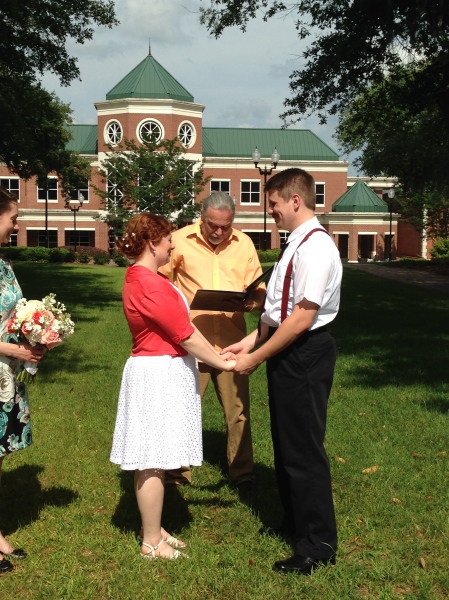 The following story comes from a blog which I have followed and enjoyed for several years, “From A Far Country.” Angus Lewis writes wonderful stories.
The following story comes from a blog which I have followed and enjoyed for several years, “From A Far Country.” Angus Lewis writes wonderful stories.
Today, during your many Christmas festivities, take a few moments to just sit still. Listen, can you hear it?
Listen
A Children’s Story for Grownups
By Angus Lewis
The Man picked an ornament from the cardboard box and held it up to the light. It was a round silver ball but it was not bright and sparkly like the newer ornaments. It was dull from rubbing against tree limbs, from bouncing around in cardboard boxes, from years of repeated handling.
He worked his way carefully between the couch and the tree to the back, the side of the tree that faced the wall. He slid a hook through the loop at the top of the Ornament and looked up, searching for the right place to hang it. There, a likely looking space near the top. He reached as high as he could and hung the Ornament in its place. Then he gently edged his way out from behind the tree to get another ornament.
The Ornament swung gently from its hook as the tree shivered from the Man’s contact.
The Ornament looked around to get his bearings. He was at the back again. That’s the way it had been the last few years. The newer, brighter ornaments got the best spots, up high and at the front. He didn’t mind. At least he was not down close to the floor.
There was nothing to see back here. He liked the front because you could see things. You could see people walking by, people with children, people with their dogs, people enjoying the crisp weather, enjoying each other, enjoying the Season. Sometimes it snowed. That was the best, the white flakes drifting silently down, covering everything in a soft, pure blanket of white. But there was nothing like that to see from the back of the tree.
Still, it was peaceful back here. He could hear the constant buzz of conversation from the other side of the tree. He had never been like that. He enjoyed the peace and quiet.
The Ornament was stirred from his silent meditation by a sudden shaking of the tree. It wasn’t just a shiver or a shudder. The tree was shaking from fright. What could it be? The Ornament looked around. Nothing. He looked up at the tree topper. No problem there. He looked down. There it was. He should have known. The Cat was climbing the tree. Every year the Man and the Woman decided the Cat had learned her lesson and could be trusted around the tree. Every year she got caught climbing the tree and got pitched into the garage for the rest of the Season.
The Cat was at eye level now, looking straight at him. There was no telling what this animal would do. She started toward the Ornament, evil intentions in her eyes. The Ornament tried to make himself smaller. It was no use. The Cat was coming for him.
But the Cat slipped by without as much as a glance. The Ornament looked over his shoulder. There it was, a bright red ornament, flashing with glitter and sequins, chattering away with his friends. The Cat had picked her target.
She was almost past him now. The Ornament was almost out of danger. Then the tail got him. Flicking this way and that, alive with the excitement of the hunt, the very tip of the tail caught the Ornament’s hook and lifted it clear of his limb. The Ornament began to tumble down through the tree, bouncing from limb to limb. The Ornament could see the hard floor rapidly approaching. This was the end of him, he was sure.
The Ornament bounced off the last limb. He closed his eyes, waiting for the crash. It never came. He opened his eyes. He had snagged in a collection of electrical cords not six inches from the floor. He was safe.
“What’s this?” It was the Man. He had discovered the remains of an ornament under the tree.
The Woman looked where he was pointing. “Oh. That’s one of the new ones. So bright and sparkly. What a shame.”
“How do you think it happened?”
“I know good and well how it happened. It was the Cat.”
“You think so? I was hoping she would have learned her lesson.”
“It was the Cat alright. Looks like it’s the garage for her again this year. Once I get my hands on her.”
“Here’s another one. Not broken, though. It got caught in the wires down here.” The Man pulled the ornament out from under the tree and showed it to the Woman. She took it and turned it over in her hands, looking at it from all directions.
“That’s one of the older balls.” She looked up at the tree. “Where are the rest of them?”
“They’re around in back, facing the wall.”
“Why is that?”
“I put the older decorations in the back where nobody could see them. You don’t want these dull old things in the front.”
The Woman folded her arms and looked thoughtfully at the tree. “You know, I’ve been thinking there’s something I don’t like about the way the tree looks but I couldn’t put my finger on it.”
“I don’t see anything wrong with it. What’s wrong with it?”
“It’s too noisy.”
“I don’t hear anything.”
“All of these bright sparkly ornaments shouting for attention. It’s too much. We need some of those older, quieter ones around front to give balance, to quiet things down. See that red ball in the center near the top? Take it down and put that one in its place.”
He reached for the ornament the Woman had indicated. “I guess this means another round of decorating.”
“You’re so perceptive.”
The Man reached up high with the salvaged decoration and hung it where the red one had been.
The Ornament settled his weight onto the support of his hook and looked around. It was a bright sunny day outside. People were out walking their dogs, pushing baby carriages, shouting greetings to one another. The Ornament smiled contentedly.
The Ornament was happy. The volume of the conversations around him had been reduced to a more tolerable level once some of the more vocal ornaments had been moved to the back of the tree. And he got to enjoy the excitement of the Season, the decorations on the mantle, the clutter of brightly wrapped gifts under the tree, the comings and goings of visitors. One couple brought a baby. They held her up to get a good look at the tree. The Ornament could see the joy in her eyes as she waved her arms and kicked her legs with excitement.
It was Christmas Eve, near midnight. The Man and the Woman had been in bed for a long time. It had started to snow around sundown. The wind was blowing, piling the snow up into big drifts and making a frigid howling sound as it wrapped itself around the corners of the house. The Ornament hung on his hook, listening. Even at this late hour the hum of conversation continued around him. But there was something. He heard something else, something besides the conversation, something besides the wind.
“Shhh. Listen.” It came out loud, louder than he had expected. The conversation stopped.
A bright green ornament next to him spoke. “I don’t hear anything but the wind.”
The statement was repeated from various parts of the tree.
“It’s nothing.”
“Just the wind.”
“Nothing but the wind.” The volume of conversation began to climb again.
“Hush.” This time it was a command and the other quiet ornaments echoed it.
“Shhh.”
“Hush.”
“Quiet.”
“Listen. I hear something, something besides the wind. Can you hear it? It’s singing.”
The tree fell silent, listening. And, one by one, they all tuned in to the whisper that the Ornament had first heard.
Glory to God
Glory to God
Glory to God in the Highest
Peace on earth
And good will to men
And if you will be still and listen, you can hear it too. There, just under the wind. There. Can you hear it? Down through the centuries from that hillside in Israel you can hear the angels sing.
Glory to God
Glory to God
Glory to God in the Highest
Peace on earth
And good will to men
Copyright © 2013 by Angus B. Lewis
All rights reserved
Used with permission





















































